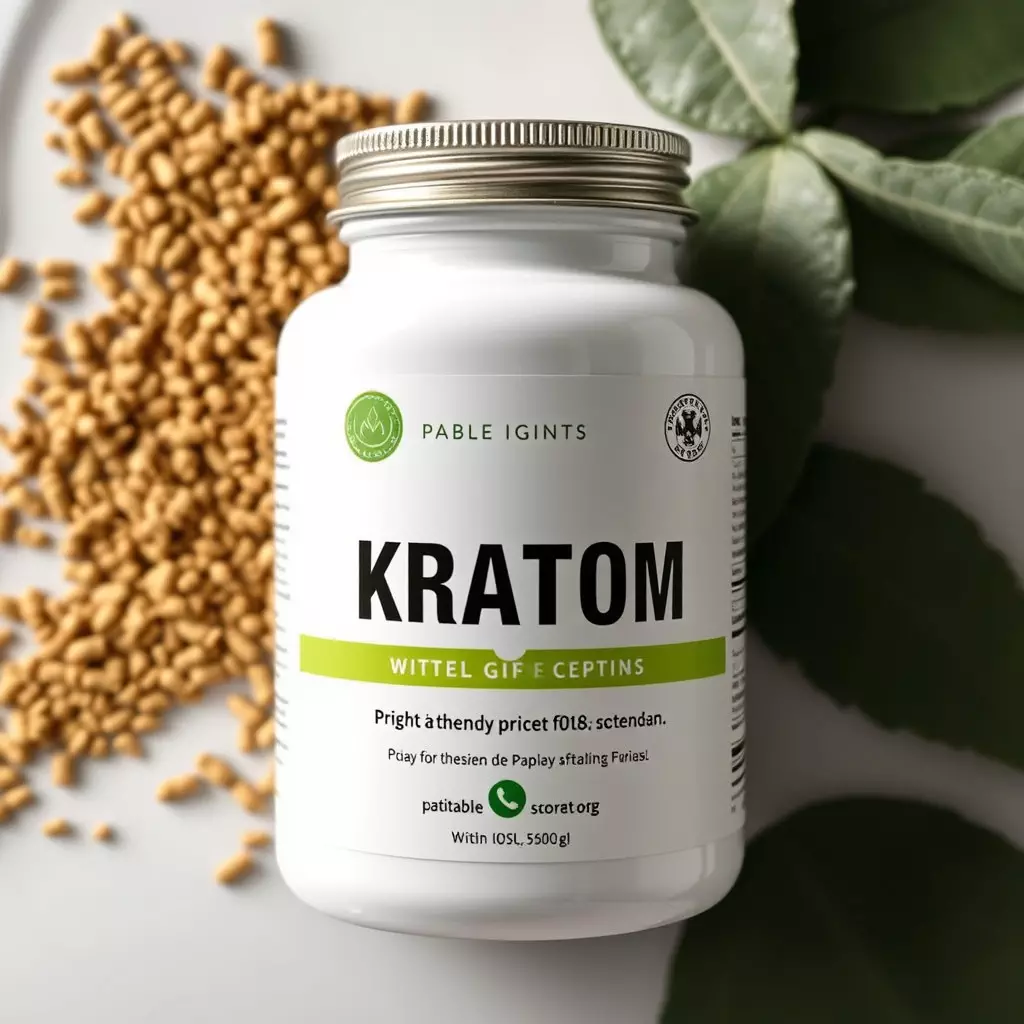Kratom, derived from Southeast Asia, has garnered attention for its potential mood-enhancing benefits due to its alkaloids mitragynine and 7-hydroxymitragynine, which engage with brain opioid receptors. These compounds may improve mood, reduce anxiety, and provide stress management support by modulating neurotransmitter systems like serotonin and norepinephrine. Kratom's effects on mood are dosage-dependent, with lower doses promoting focus and stimulation, and higher doses inducing calmness and contentment. While it shows promise for mood enhancement and emotional resilience, especially when combined with a holistic health approach, the use of kratom must be approached responsibly due to its complex effects profile and potential side effects. It's subject to region-specific legal statuses, necessitating medical supervision for safe and effective use. Prospective users should be well-informed about both the potential therapeutic benefits and risks associated with mood enhancement with kratom, which can only be managed safely under professional healthcare guidance.
Exploring the intersection of botanicals and emotional wellness, this article delves into the potential benefits of kratom for enhancing mood and bolstering resilience. We examine the alkaloid profile of kratom and its effects on psychological health, offering insights into how it may be integrated into a comprehensive strategy for sustained mental fortitude and overall emotional well-being. The exploration of ‘mood enhancement with kratom’ is crucial for those seeking natural alternatives to manage their emotional landscape, making this article an invaluable resource for individuals interested in the therapeutic properties of kratom alkaloids.
- Unraveling the Potential of Kratom for Mood Enhancement
- The Role of Kratom Alkaloids in Boosting Emotional Resilience
- Integrating Kratom into a Holistic Approach for Sustained Well-being and Resilience
Unraveling the Potential of Kratom for Mood Enhancement

Kratom, a plant native to Southeast Asia, has garnered attention for its potential effects on mood enhancement. The leaves of kratom contain alkaloids such as mitragynine and 7-hydroxymitragynine, which are thought to interact with the brain’s opioid receptors. These interactions can lead to a range of psychological effects, including elevated mood, reduced anxiety, and increased feelings of well-being. Users report that kratom helps them manage stress and experience euphoria, which may be beneficial for those seeking natural alternatives to prescription medications for mood disorders. The impact of kratom appears to be dose-dependent, with lower doses often promoting energy and focus, while higher doses are more sedating and can induce a sense of calm and contentment.
The therapeutic potential of kratom for mood enhancement is an area of ongoing research. Preliminary studies suggest that the plant may offer benefits for individuals experiencing mood disturbances. However, it is crucial to approach the use of kratom with caution due to its complex effects and potential side effects. The legal status of kratom varies by region, and it is subject to regulatory restrictions in many countries. As such, those interested in exploring kratom for mood enhancement should do so under the guidance of a healthcare professional, ensuring they are fully informed about both the therapeutic and risk factors associated with its use.
The Role of Kratom Alkaloids in Boosting Emotional Resilience

Kratom, a tropical tree native to Southeast Asia, has garnered attention for its potential impact on emotional well-being and resilience through its alkaloid profile. Mitragynine and 7-hydroxymitragynine are the primary active components found in kratom leaves, and they interact with the brain’s opioid receptors, influencing mood enhancement with kratom. These alkaloids can modulate neurotransmitter systems such as serotonin and norepinephrine, which play pivotal roles in regulating mood and emotional responses. This modulation may lead to improved emotional regulation, helping individuals manage stress more effectively and fostering a greater sense of well-being.
Furthermore, the role of kratom alkaloids extends beyond immediate mood enhancement. Regular, moderate consumption of kratom has been associated with an increased capacity for emotional resilience. This is likely due to its effects on neurotransmitter systems that contribute to coping mechanisms against psychological stress. Users may report a heightened ability to endure and overcome challenging life events, suggesting that kratom can play a supportive role in cultivating mental fortitude and emotional resilience. However, it’s crucial to approach the use of kratom with caution and to be informed about its legal status and potential side effects, as well as to consider professional guidance when integrating it into one’s wellness routine.
Integrating Kratom into a Holistic Approach for Sustained Well-being and Resilience

Kratom, a plant originating from Southeast Asia, has garnered attention in holistic health practices for its potential to enhance emotional well-being and resilience. Proponents suggest that certain strains of kratom can influence mood by interacting with the brain’s opioid receptors, leading to feelings of euphoria and alleviation of stress or anxiety. This mood enhancement with kratom is thought to contribute positively to overall emotional health when integrated into a comprehensive wellness regimen. It’s important to approach its use judiciously, as the effects can vary widely depending on dosage, strain, and individual physiology.
Incorporating kratom into a holistic approach for sustained well-being and resilience involves a multifaceted strategy that includes mindful consumption of kratom, regular exercise, balanced nutrition, and stress management techniques. This synergistic combination aims to create a support system for mental fortitude and emotional balance. Users are encouraged to consult with healthcare professionals before integrating kratom into their wellness routine to ensure safety and efficacy. By doing so, one can harness the mood-enhancing properties of kratom while promoting long-term resilience and emotional health in a manner that complements other aspects of a holistic lifestyle.
Kratom’s potential in mood enhancement and its role in fostering emotional resilience presents a compelling case for its integration into holistic wellness strategies. The alkaloids found within kratom not only have the capacity to elevate one’s emotional state but also fortify individuals against future psychological challenges. As with any supplement, it is imperative to approach its use with caution and in conjunction with professional guidance. Future research should continue to explore the nuances of kratom’s effects to fully understand its role in promoting sustained well-being and resilience. With careful consideration and responsible application, kratom may offer significant benefits for those seeking to enhance their emotional well-being and adaptability to life’s stressors.






